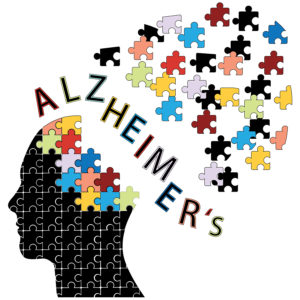Life is complicated enough, but when you’re dealing with Alzheimer’s — either you’ve been diagnosed or a loved one has — it can seem to be overwhelming at times. In many cases, during the first months following diagnosis, it may seem as though the elderly individual is still capable of many things.
And they are.

However, that won’t remain the case forever. While the average life expectancy for somebody diagnosed with Alzheimer’s is 8 to 10 years (Alzheimer’s Association), the challenges in life can increase significantly after those initial years.
The seasons of life will change, and dramatically so when it comes to Alzheimer’s and other types of dementia. As a family member or caregiver, you need to be prepared for those changes. You can’t simply assume everything is going to be fine, that life will go on the way it has been.
Memory loss will become more pronounced.
One of the earliest signs and symptoms of Alzheimer’s is memory loss. This is usually what convinces an aging senior to visit their doctor for formal testing and a proper diagnosis.
Even though they may understand something is going on with their memory, and the thought of Alzheimer’s or dementia could come in here and there, hearing those words from a doctor can still take the wind out of your sails.
Yet, during those initial months after diagnosis, the signs and symptoms of Alzheimer’s disease will likely be tempered. The elderly person will likely be able to tend to much of their own basic care.
They might only need a few reminders or somebody to keep an eye on them and make sure they are safe during the day.
But, as the symptoms become more pronounced and memory loss increases, it will affect many other aspects of life, including safety.
It’s best to be prepared.
When you’re prepared, that means you have looked into every home care option there is. While this aging individual may have a sincere desire to remain home the rest of his or her life, they can’t do it on their own.
They will need help. An aging spouse might become overwhelmed. So, too, can an adult child who may live in the area. That’s why home care is the best option to consider.
Understanding that the seasons of Alzheimer’s change, just as the weather, will make you realize that you will need help at some point in time. It’s best to discuss all options now while the aging senior is still lucid and can help make reasoned decisions, such as about home care.
